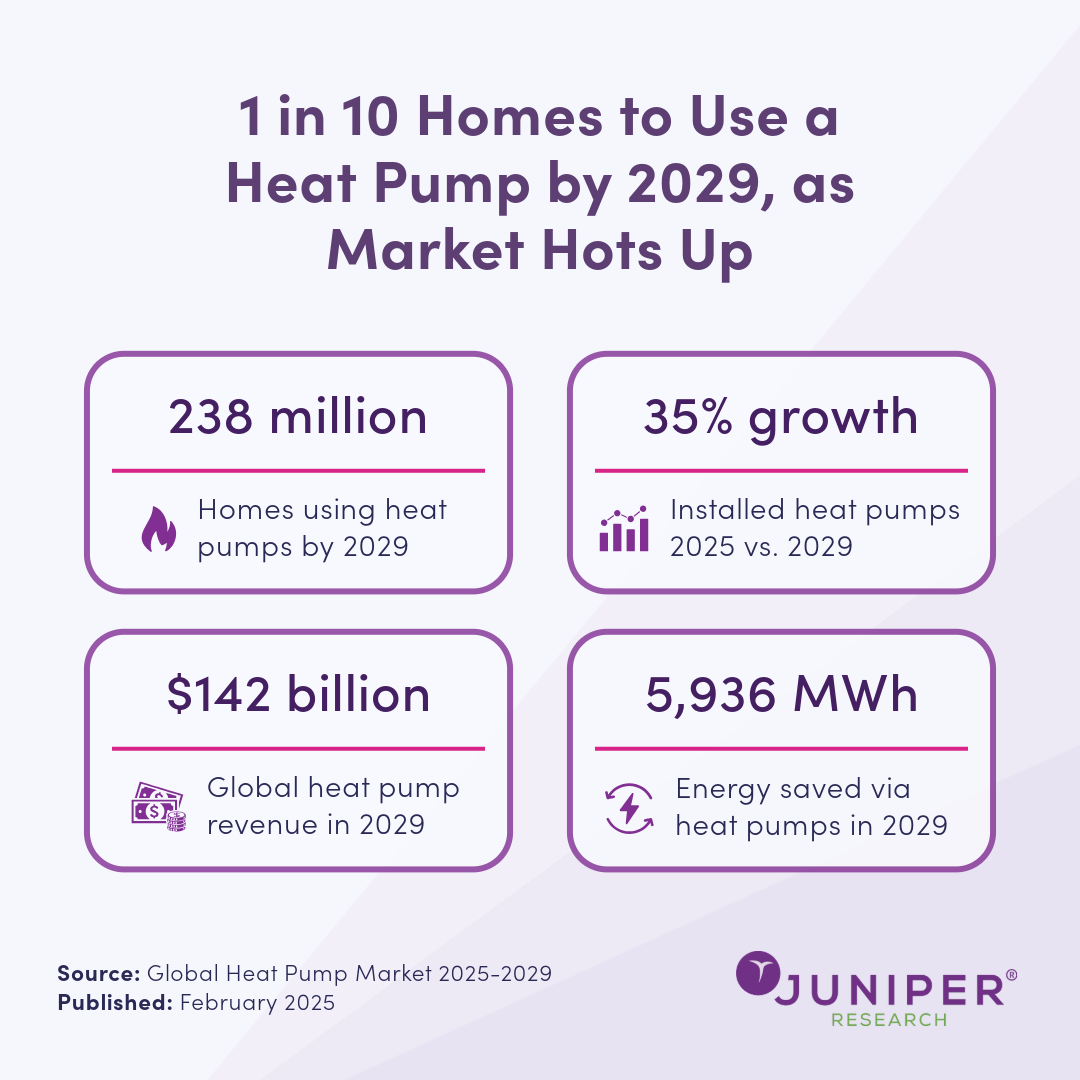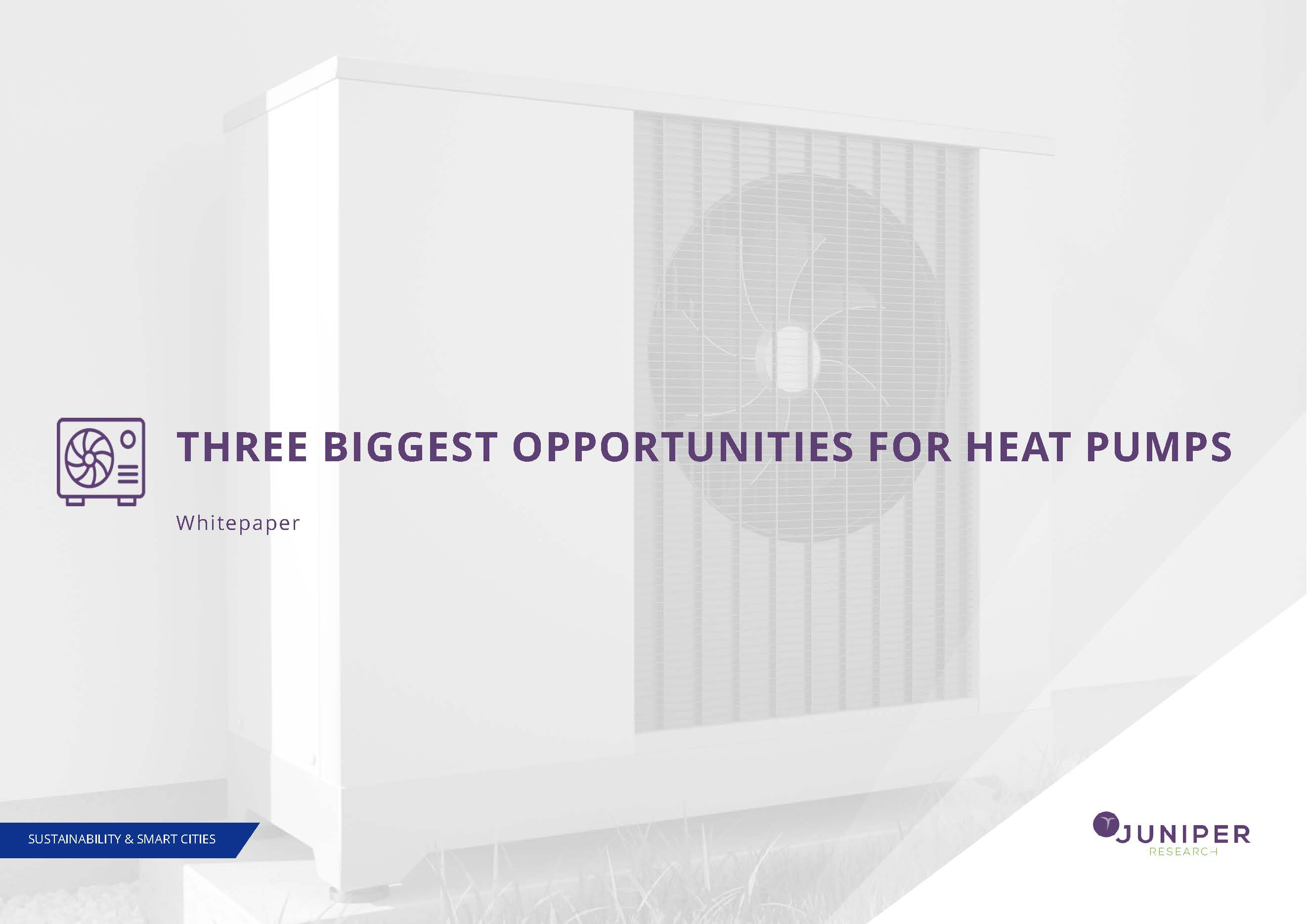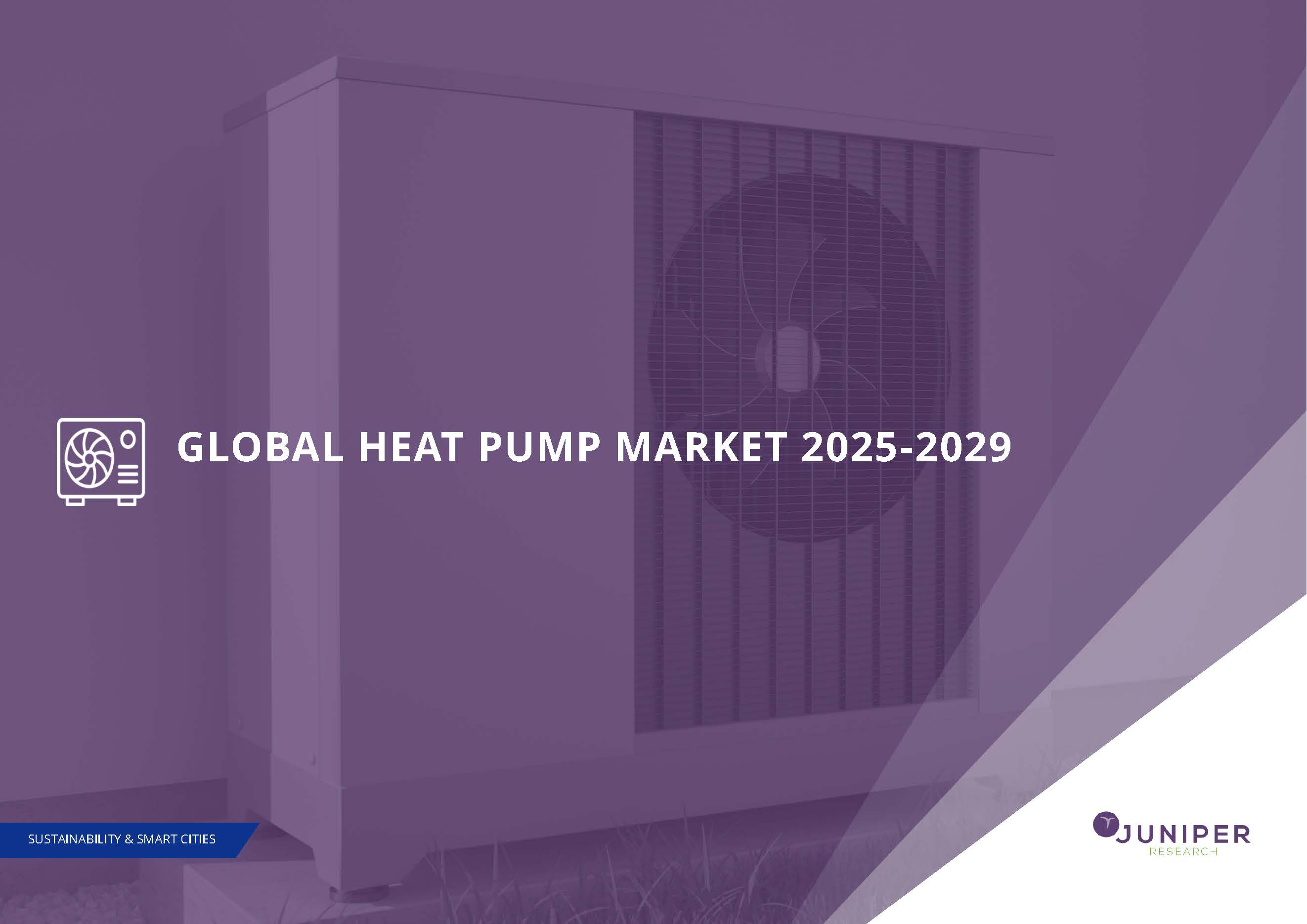At a Glance: The Heat Pumps Market in 2025


Heat pumps are gaining popularity as a sustainable alternative to traditional heating and cooling systems. Unlike conventional boilers that burn fuel to generate heat, heat pumps transfer heat from one location to another, making them highly energy-efficient. They work by extracting heat from the environment—air, ground, or water—and using a refrigeration cycle to provide heating or cooling. Even in cold temperatures, they can effectively warm indoor spaces, offering a greener way to regulate temperature in homes and businesses.
There are four main types of heat pumps, each suited to different environments and needs.
- Air-source heat pumps (ASHPs) are the most widely used, extracting heat from the ambient air to heat water or indoor spaces.
- Ground-source heat pumps (GSHPs), also known as geothermal heat pumps, draw heat from the ground through underground pipes, providing consistent performance year-round.
- Water-source heat pumps (WSHPs) utilise thermal energy from lakes, rivers, or reservoirs, offering high efficiency but requiring proximity to a water source.
Each type has unique benefits, with ASHPs being the easiest to install, while GSHPs and WSHPs provide long-term efficiency gains.
The rising adoption of heat pumps is driven by global decarbonisation efforts and government policies aimed at reducing carbon emissions. Many countries, including the UK, have recognised heat pumps as a key technology in achieving net-zero targets. Compared to gas boilers, heat pumps can cut carbon emissions by at least 20%, with even greater reductions when powered by renewable energy. As energy costs fluctuate and environmental concerns grow, businesses and homeowners are increasingly considering heat pumps as a cost-effective, low-carbon solution.
Consumer interest in sustainable living and energy-efficient technologies is further accelerating heat pump adoption. Improvements in affordability, efficiency, and performance have made them a viable option, even in colder climates or older buildings. With continued technological advancements and government incentives, heat pumps are set to play a vital role in the transition to a cleaner, more sustainable energy future.
Source: Global Heat Pumps Market 2025-2029
Download the Whitepaper: Three Biggest Opportunities for Heat Pumps
Latest research, whitepapers & press releases
-
 ReportJanuary 2026IoT & Emerging Technology
ReportJanuary 2026IoT & Emerging TechnologyPost-quantum Cryptography Market: 2026-2035
Juniper Research’s Post-quantum Cryptography (PQC) research suite provides a comprehensive and insightful analysis of this market; enabling stakeholders, including PQC-enabled platform providers, specialists, cybersecurity consultancies, and many others, to understand future growth, key trends, and the competitive environment.
VIEW -
 ReportJanuary 2026Telecoms & Connectivity
ReportJanuary 2026Telecoms & ConnectivityMVNO in a Box Market: 2026-2030
Juniper Research’s MVNO in a Box research suite provides Mobile Virtual Network Enablers, Mobile Virtual Network Aggregators, and other players with detailed analysis and strategic recommendations for monetising demand for MVNO in a Box services.
VIEW -
 ReportDecember 2025
ReportDecember 2025AI Agents for Customer Experience Platforms Market: 2025-2030
Our comprehensive AI Agents for Customer Experience Platforms research suite comprises detailed assessment of a market that is set to disrupt mobile communications. It provides stakeholders with insight into the key opportunities within the AI agents for customer experience platforms market over the next two years.
VIEW -
 ReportDecember 2025Fintech & Payments
ReportDecember 2025Fintech & PaymentseCommerce Fraud Prevention Market: 2025-2030
Our eCommerce Fraud Prevention research suite provides a detailed and insightful analysis of this evolving market; enabling stakeholders from financial institutions, law enforcement agencies, regulatory bodies and technology vendors to understand future growth, key trends, and the competitive environment.
VIEW -
 ReportNovember 2025Telecoms & Connectivity
ReportNovember 2025Telecoms & ConnectivityeSIMs & iSIMs Market: 2025-2030
Juniper Research’s eSIMs and iSIMs research suite offers insightful analysis of a market set to experience significant growth in the next five years. The research suite provides mobile network operators (MNOs), original equipment manufacturers (OEMs), and eSIM management and platforms vendors with intelligence on how to capitalise on the market growth, and guidance on how eSIM-only devices and sensors, SGP.42, in-factory provisioning, and iSIMs will change the competitive landscape.
VIEW -
 ReportNovember 2025Fintech & Payments
ReportNovember 2025Fintech & PaymentsModern Card Issuing Platforms Market: 2025-2030
Our Modern Card Issuing Platforms Market research suite provides a detailed and insightful analysis of this evolving market; enabling stakeholders from banks, financial institutions, fintech companies, and technology vendors to understand future growth, key trends, and the competitive environment.
VIEW
-
 WhitepaperJanuary 2026IoT & Emerging Technology
WhitepaperJanuary 2026IoT & Emerging TechnologyPreparing for Q-Day: Post-quantum Security Shift
Our complimentary whitepaper, Preparing for Q-Day: Post-quantum Security Shift, assesses the factors which are increasing interest in adopting PQC, and challenges to PQC adoption. Additionally, it includes a forecast summary of the global spend on PQC by 2035.
VIEW -
 WhitepaperJanuary 2026Telecoms & Connectivity
WhitepaperJanuary 2026Telecoms & ConnectivityHow Fintechs and Retail Companies Are Changing Mobile Services
Our complimentary whitepaper, How Fintechs and Retail Companies Are Changing Mobile Services, explores the key enterprises entering the MVNO market and launching mobile services via MVNO in a Box partners. It also provides forecasts for total MVNO revenue from mobile subscribers in 2030.
VIEW -
 WhitepaperJanuary 2026IoT & Emerging Technology
WhitepaperJanuary 2026IoT & Emerging TechnologyTop 10 Emerging Tech Trends 2026
See which emerging technologies will shape enterprise strategy and investment in 2026; from post-quantum cryptography to neuromorphic computing and next-generation infrastructure.
VIEW -
 WhitepaperDecember 2025Telecoms & Connectivity
WhitepaperDecember 2025Telecoms & ConnectivityHuman + AI: Drivers of Customer Experience AI Agents in 2026
Our complimentary whitepaper, Human + AI: Drivers of Customer Experience AI Agents in 2026, examines the key drivers of the AI agents for customer experience platforms market in 2025.
VIEW -
 WhitepaperDecember 2025Fintech & Payments
WhitepaperDecember 2025Fintech & PaymentsBeyond Chargebacks: The True Cost of Fraud for Digital Commerce
Our complimentary whitepaper, Beyond Chargebacks: The True Cost of Fraud for Digital Commerce, examines the state of the eCommerce fraud prevention market; considering the impact of evolving digital fraud strategies, including key trends such as identity theft, account takeovers, chargebacks, policy abuse and friendly fraud.
VIEW -
 WhitepaperNovember 2025Telecoms & Connectivity
WhitepaperNovember 2025Telecoms & ConnectivityeSIM-only Devices: The Impact on Operators, Consumers, and IoT
Our complimentary whitepaper, eSIM-only Devices: The Impact on Operators, Consumers, and IoT, explores the challenges and opportunities for the three segments, with a particular focus on eSIM-only smartphones and SGP.42.
VIEW
-
Fintech & Payments
Modern Card Issuing Platforms to Issue 1.6 Billion Payment Cards in 2030, as Banks Shift Focus From UX to Cost Efficiency
January 2026 -
IoT & Emerging Technology
Post-quantum Cryptography Market to Exceed $13 Billion by 2035 as Q-Day Awareness Accelerates
January 2026 -
Fintech & Payments
Digital Wallets: QR Codes to Constitute Half of All Wallet Transactions Globally Over Next Five Years
January 2026 -
Telecoms & Connectivity
MVNO in a Box Platforms to Drive MVNO Market to 438 Million Subscribers Globally by 2030
January 2026 -
IoT & Emerging Technology
Juniper Research Unveils Top 10 Emerging Tech Trends to Watch in 2026
January 2026 -
Fintech & Payments
Digital Identity App Usage to Hit 6.2 Billion by 2030, Driven by Shift to Decentralised Models
December 2025



















